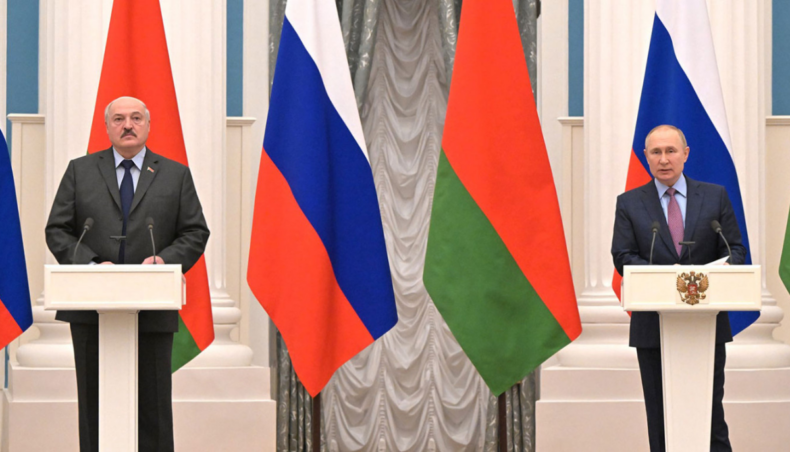According to the Russian foreign ministry, Russian President Vladimir Putin assured Minsk on Saturday that Moscow will provide Minsk with missile systems capable of transporting nuclear warheads.
Alexander Lukashenko, the president of Belarus, expressed alarm over the “aggressive,” “confrontational,” and “repulsive” attitudes of its neighbors, Poland and Lithuania, during a meeting with Putin in St. Petersburg.
In reaction to what he claimed were nuclear-armed flights by the U.S.-led NATO alliance close to Belarus’ borders, he pleaded with Putin to assist Belarus in mounting a “symmetrical response.”
A reciprocal response, according to Putin, is not now necessary, but Belarus’ Su-25 jets, which were made in Russia, may be updated there if necessary.
According to a meeting report from the foreign ministry, he said, “We will send Iskander-M tactical missile systems to Belarus, which can utilize both ballistic and cruise missiles, both in conventional and nuclear variants.”
The NATO-designated “SS-26 Stone” mobile guided missile system took the place of the Soviet “Scud.” Its two guided missiles can carry either conventional or nuclear bombs and have a range of up to 500 km (300 miles).
The two men’s meeting was broadcast in parts.
“Must be ready for anything”
Lukashenko united Belarus and its close ally Russia, saying,
“Minsk must be ready for anything, even the use of major armaments to defend our fatherland from Brest to Vladivostok.”
He specifically requested assistance with giving Belarusian military planes nuclear capability.
Since Moscow launched soldiers into Ukraine four months ago, amid claims that NATO wanted to admit Ukraine and use it as a springboard to attack Russia, tensions between Moscow and the West have risen sharply.
In addition to setting off a wave of Western penalties, Russia’s action has pushed Sweden and Finland, Russia’s northern neighbors, to submit applications to join the Western alliance.
Particularly in the last week, Lithuania has enraged Russia by preventing the transit of products subject to European sanctions from Russia, through Belarus, to Russia’s Baltic exclave of Kaliningrad through its territory.
Although Lithuania claims that it barely impacts 1% of the regular goods transit on the route and that passenger travel is unaffected, Russia has referred to it as a “blockade.”













